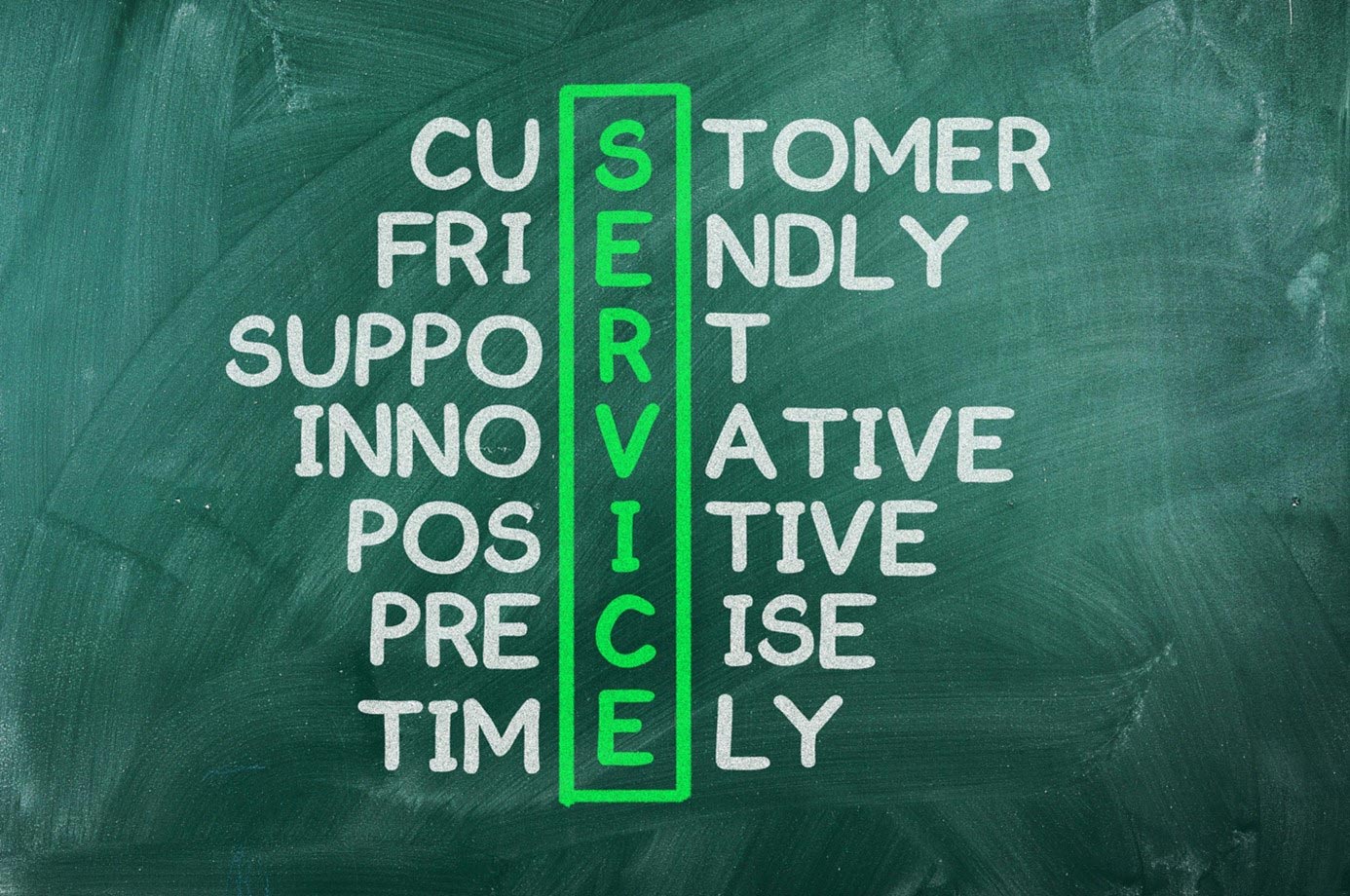In today’s era of digitalization, fascinating opportunities are opening up for entrepreneurs to set up and successfully run their own online business. The internet has revolutionized the way business is done and offers people around the world the chance to realize innovative ideas and generate income. At the same time, we are in an era in which digitalization is fundamentally changing the way we live and do business.
In this comprehensive post, we’ll take a step-by-step journey to develop a deeper understanding of how you can build a profitable online business from the ground up. Our tips will serve as a guide to give you a clear overview of all the important aspects to consider when starting and growing an online business.
Not only will we cover practical steps, but we’ll also introduce key ideas and strategies that can boost the success of your business. Get ready to begin your online business journey as we explore together the best practices, techniques and secrets to your digital success.
In the following sections we will:
- Highlighting the basics of online business, from the definition to the benefits.
- Develop creative online business ideas and get to know inspiring examples.
- Provide a step-by-step guide to getting started, including a solid business strategy.
- Present practical implementation strategies for your online store and effective online marketing.
- Discuss success and growth strategies to take your business to the next level.
- Understand the importance of SEO in online business and explore local SEO opportunities.
- Provide tips and recommendations for budding entrepreneurs.
- Conclude and take a look into the future of online business.
Together we will explore the exciting world of online business and give you all the tools you need to make your own project a success – building your online business. Let’s dive in!
Reading time: approximately 20 minutes
Basics for building an online business: opportunities and challenges
What does it mean to start an online business?
In today’s digital era, the term “online business” is no longer just a buzzword, but a viable career option for millions of people worldwide. But what exactly does it mean to start an online business? It’s about utilizing a business idea that is executed in the digital space, from an online store for handmade products to virtual services such as graphic design or consulting.
Starting an online business requires not only a viable idea and the courage to implement it, but also strategic planning, perseverance and the ability to adapt to changing market trends.
The most important requirements for a successful online business
Before you start your own business, you should be aware of some basic requirements. These serve as the foundation on which you can build your digital company.
1. a robust business idea: the heart of your online business
A well-thought-out and well-researched business idea is the key to a breakthrough in online business. It is not enough to have a general idea. You need a specific, marketable idea that can establish itself in a niche. Remember that the best business ideas often come from personal experiences, passions or identifying gaps in the market.
To develop a solid business idea, you should analyze industry trends, survey potential customers and conduct competitive analysis. This process not only helps you to develop a viable business idea, but also to gain a deep understanding of the market in which you want to operate.
2. knowledge of the target group: the basis for targeted marketing

A deep understanding of your target group is crucial to the success of your online business. It’s about understanding exactly who your potential customers are, what they need and how they behave. Use market analysis, customer surveys and socio-demographic data to get a clear picture of your target audience. This information is invaluable for developing customized marketing strategies and product offerings. The better you know your target group, the more effectively you can respond to their needs and build strong customer loyalty.
3. technical understanding and online skills: Essential skills
In today’s digitalized world, technical knowledge and online skills are essential. This includes not only knowing how to create and manage a professional website, but also knowledge in areas such as online marketing, SEO and social media management. Understand how search engines work, how to create effective online advertising campaigns and how social networks can be used to strengthen your brand. These skills are crucial to being visible and competitive in the digital space.
4. marketing strategy: the key to customer acquisition
A comprehensive marketing strategy is the lifeblood of your online business. You should have a plan that includes both long-term goals and short-term tactics. Use a combination of SEO, social media marketing and email marketing to reach and engage your target audience. Keep in mind that each of these methods requires a different approach and knowledge of each platform. Measure the effectiveness of your campaigns regularly and adjust your strategy accordingly.
5. legal protection: a must for every online business

The legal protection of your online business is of the utmost importance. This includes registering your business, obtaining all necessary permits and licenses and understanding legal regulations relevant to your online trade. Pay particular attention to the protection of customer data and compliance with data protection regulations. Professional legal advice can be very valuable here.
6. financial management: ensuring the financial health of your company
Effective financial management is crucial to the long-term success of your online business. This includes careful budget planning, managing cash flows and understanding the pricing of your products or services. Keep an eye on costs and develop strategies for sustainable financial growth. Use accounting software to monitor your finances and consult a professional accountant if necessary.
7. The right attitude and resilience: your personal drive
Finally, but no less important, the right attitude and resilience are crucial for success in your self-employment. The road of entrepreneurship is often paved with challenges. A positive attitude, a willingness to constantly learn and the ability to adapt to change are essential.
See setbacks as learning opportunities and stay true to your vision. Building a successful online business requires patience, dedication and a willingness to learn from your mistakes and keep going. The benefits will outweigh your self-employment with the right business ideas.
In the next section, we will delve into the essential steps required to build your own online business and gradually lead it to success.

Creative and successful online business ideas, strategies and best practices
The brainstorming process: How to develop an online business idea
v

Recognizing opportunities and gaps in the market
It all starts with market observation. By analyzing existing markets, you can identify where there is a need for improvements or entirely new products. This could be done by identifying trends, reading customer reviews of existing products or examining industry reports.
Using interests and passions
A personal interest or passion can be the key to an online business idea that inspires you not only today, but also in the future. Think about what topics fascinate you and how you can turn them into a business. An online business based on your strengths and interests has a greater chance of long-term success.
Offering solutions to problems
Think about challenges that you or people around you are facing. An online business idea that offers an effective solution to a common problem can have a high potential for success. It is important that your solution offers a clear advantage or improvement over existing options.
Business models for beginners: an overview
For beginners in online business, choosing the right business model can be a bit overwhelming. There are several models that are particularly suitable for beginners, as they are relatively easy to start and require less start-up capital.
Dropshipping
With dropshipping, you sell products directly to customers without having them in stock. You create an online store, select the best products offered by suppliers and they take care of storage and shipping. This model requires slightly less start-up capital and is a good way to gain experience in e-commerce.
Affiliate Marketing
As an affiliate, you promote products or services and receive a commission for each referral or sale. This can be done by writing blog posts, creating reviews or by contacting us via email address. The beauty of this is that you don’t need your own product, minimizing the risk. For the most part, you don’t need a lot of start-up capital to get started.
Online courses and coaching
If you have expertise in a particular area, online courses or personal coaching could be an excellent option. The key here is to create high-quality content that offers real added value. Find your niche, for example on the topic: “Building an online business with little start-up capital”.
The benefits of building such a business are that you can use your own experience and knowledge to help others realize their entrepreneurial dreams, even if they have little money to start with. This not only creates significant added value for your customers, but also establishes you as an expert in a specific field, which in turn strengthens and expands your own online business.
Digital products
The sale of digital products such as software, designs or music enables a high degree of scalability. Digital products often only require one-off creation costs and can then be sold many times over, which can lead to a passive income stream. Our tip: always keep an eye on platform updates and new technical requirements in order to be able to adapt and adjust.
Once you have found or created a suitable digital product, the choice of sales platform is of course still crucial. Having your own website is often the cornerstone, but selling on other, well-frequented platforms is a good option and should be taken into account when planning, as the major providers offer the digital products in a bundle compared to having their own website and can therefore put your USP in the foreground.
Market analysis and target group: understanding demand
The importance of market analysis
To ensure that your online business idea is on solid ground, you need to analyze the market thoroughly. This means understanding the size of the market, growth potential, competitive intensity and customer needs. Tools such as SWOT analyses can help to identify both the opportunities and the risks.
Define target group
Specifying your target audience allows you to precisely target your marketing and communication strategies. Having a clear idea of your target audience, including their demographics, interests and buying habits, is crucial for developing targeted marketing campaigns.
Tools for market analysis
Digital tools such as Google Trends, Google Analytics or specialized market research services offer deep insights into the behaviour and preferences of your potential customers. Use these tools to make data-based decisions and adapt your online business strategy accordingly.
Obtain feedback
Building a successful online business requires iteration and customization. Actively solicit feedback from early adopters to refine your product or service. Use surveys, user tests or direct conversations to gain valuable insights and improve your offering.
Create a business plan: The guide for your online business
The importance of the business plan
A well-thought-out business plan is like a navigation device for your online business. It helps you to structure your ideas, identify potential challenges and develop strategies to overcome them. It is also a crucial means of communication with investors, banks and business partners.

The elements of an online business plan
- Executive Summary: This section should provide a concise summary of your online business. Here you clearly state what the goal of your business is and how you intend to achieve it. Even if it appears first in the business plan, it is usually written last to cover all the important points.
- Business description: Describe the online business you are building and the problems or needs you are addressing. Define your business goals, vision and values to provide a framework for your business decisions.
- Market analysis: A sound market analysis shows that you have thoroughly researched the market you want to serve. This includes the size of the market, growth potential, demographics and psychographic data of your target group, as well as an analysis of your competitors.
- Organization and management: Introduce your management team and describe the organizational structure of your online business. Discuss how the different parts of your business work together to achieve your business goals.
- Products and services: This is where you explain in detail what you sell or what service you offer. It is important to clearly explain the benefits that your products or services offer and how they stand out from the competition.
- Marketing and sales strategy: Develop a plan for how you will reach your target customers and which sales channels you will use. This also includes which marketing strategies you will use to position your online business ideas on the market.
- Financial plan: In this section, you disclose your financial projections. It should include sales forecasts, profit and loss statements, cash flow analyses and a break-even analysis.
Legal basis for online entrepreneurs
Important legal issues
Company form: Choosing the right company form has an impact on tax aspects, liability issues and the administrative burden. For online businesses in Germany, the most common forms are the sole proprietorship, the UG (haftungsbeschränkt) and the GmbH.
Data protection: For online businesses, compliance with the GDPR is non-negotiable. Clarify what data you collect and how you store and protect it. A privacy policy on your website is mandatory.
Imprint obligation: According to the TMG, every business website requires an imprint. This creates transparency and trust with your customers.
Copyright and trademark protection: Check whether you are using third-party content and whether this is legally protected. You should also check whether your own brand names or logos are eligible for protection.
Select products and services
Understanding market needs
To choose the right products or services for your online business, you first need to understand what your customers need and value. Research current trends, gather customer feedback and observe what works well for your competitors.
Quality assurance and supply chain
The quality of your products or services is critical to the reputation of your business. Make sure you implement quality controls and that your supply chain is reliable. This can range from selecting trustworthy manufacturers to ensuring on-time deliveries.

Scalability
When selecting products and services, you should also consider how they can scale. Can you meet demand as your business ideas grow? Do you have enough resources to maintain quality as demand increases?
Summary
The detailed development of the planning and implementation phase is critical. It is used to think through and plan all aspects of your online business – from the business idea to legal aspects and product selection. Take the time to work through this phase thoroughly, as it is often crucial to the future success of your business.
Building an online business presence
When building an online presence for your online business, it’s crucial to create an engaging web design and positive user experience (UX), generate value-added content and increase your website’s visibility through effective search engine optimization (SEO). Let’s look at these key components in more detail.
Web design and user experience: What counts?
Good web design starts with the layout. The structure of your website should be clear and logical so that information is easy to find and users can navigate intuitively through the pages. This is especially important if you are building an online business, as your website is often the first impression potential customers get of your company.
The choice of colors and fonts should not only reflect your brand, but also support readability and navigation. Responsive design is essential as more and more users access websites from their mobile devices. Fast loading times are also of great importance. Every second counts, and a slow website can put off potential customers.
When it comes to user experience, simplicity is the key to success. Complicated designs can confuse users, while a simple but effective design helps to improve the user experience.
Clear menu navigation and visible call-to-action buttons help users to find their way around and perform the desired actions on your site. In addition, accessibility is an important aspect that you should not neglect to ensure that your website is accessible to all.
Content creation: creating content with added value
Content creation starts with a thorough target group analysis. Understand who your customers are and what they are looking for. This information is crucial to creating content that meets their needs while supporting your SEO strategy. Producing high-quality content means writing well-researched, informative and engaging articles that provide solutions and valuable knowledge.
It is advisable to enrich your content with relevant images, videos and infographics. These multimedia components can help make complex information more accessible and interesting. Regularly publishing new content keeps your website up-to-date and attracts both visitors and search engines.
Search engine optimization (SEO): Becoming visible on the web
On-page SEO: Optimization of your website
On-page SEO is a crucial aspect of increasing the visibility of your website in search engine results. It starts with the strategic placement of relevant keywords such as “build online business”, “start online business” or “online store”. These keywords should be embedded in the titles, headings, main text and even the meta descriptions of your website. A clear structure of your content and the articles on your page, organized by header tags (H1, H2, H3, etc.), helps search engines to better understand and categorize the hierarchy and relevance of your content.
It is also important to optimize the user experience (UX) on your website. This includes intuitive navigation, fast loading times and an appealing design. A user-friendly website not only leads to better user retention, but is also rated positively by search engines.
Off-page SEO: building your online presence
Off-page SEO refers to measures that take place outside your website to increase its authority and visibility. Generating high-quality backlinks from other trustworthy sites is a key factor here. These backlinks act as recommendations or trustworthy references for search engines, increasing the credibility of your website.
Social media is also an important part of off-page SEO. Active social media profiles and sharing your content on these platforms not only increase the visibility of your content, but also signal the relevance and popularity of your website to search engines.
Technical SEO: Optimization behind the scenes
Technical SEO involves optimizing the technical aspects of your website to improve indexing and crawling by search engines. This includes ensuring that your website is optimized for mobile-first indexing, as more and more users are accessing the internet via mobile devices.
The security of your website, often ensured by HTTPS encryption, is another important aspect. A secure website not only protects your users’ data, but is also a ranking factor for search engines.
Summary
The combination of on-page, off-page and technical SEO forms a comprehensive strategy to increase the visibility of your website. By continually creating high-quality content, optimizing the user experience and maintaining technical aspects of your site, you are laying a solid foundation for your online business building. These elements are crucial to succeeding in the digital space and building your presence online that is both engaging and findable.
Effective marketing strategies for expanding your online business
Marketing your online business is a crucial step on the way to a successful online company. A well-thought-out marketing strategy can make the difference between an online store that gets lost in the sea of internet offers and a business that resonates with the target group and generates a stable income. Three central pillars of online marketing are email marketing, social media marketing and affiliate marketing. In the following, we will take a closer look at these pillars, taking into account the required keyword density.
Email marketing: customer loyalty through a personal approach
A powerful tool to build a direct and personal relationship with your customers and spread the benefits of your idea. With a well-structured email campaign, you can deliver information about new products, special offers or articles from your blog directly to your subscribers’ inboxes.
The challenge is to find the balance: You want to provide valuable content without flooding your list with too many emails. A regular newsletter can be an effective way to keep your customers informed while promoting your online business. A single email can do more than many other marketing efforts, especially if it is designed with care and strategic thinking to fit your theme.

Social media marketing: increasing reach and interaction

Social media platforms offer you a direct channel to communicate with your focus group and increase the reach of your online business. This is not just about promoting your products, but also about building a brand and cultivating a community. By sharing stories, replying to comments and initiating discussions, you create an active profile that your customers will appreciate. Social media offers the opportunity to test your online business ideas, get feedback and build a relationship with your customers that goes beyond simply buying and selling.
Affiliate marketing: building and using partnerships
Affiliate marketing is a method in which you enter into partnerships with other entrepreneurs and influencers who promote your online business or certain products more and more in their network. In return, they receive a commission for every sale made through their recommendation. This is a win-win situation: you increase the sales of your business and your affiliate partners benefit from the additional revenue. However, it is important to choose the right affiliate partners that fit your brand and target audience to ensure that these referrals are authentic and portray your business in a positive light.
By integrating these marketing strategies, you can expand and consolidate your online business step by step. It is important to look not only at the sales figures, but also at the relationships you build with your customers. Loyalty and trust are the foundation for a long-term successful online business. With creative ideas, a strong online presence and a solid marketing approach, you can turn your vision of your own business into reality.
E-commerce and online stores: The step-by-step path to digital retail success
From product idea to sale: opening an online store
Opening an online store is something exciting and a central part of building an online business. It all starts with an online business idea. But how do you turn an idea into a successful online business? It’s not just about choosing any product, but one that solves real problems or satisfies needs. Ideas can come from personal passions or recognized gaps in the market. Ideation is often an iterative process that involves research, brainstorming and customer feedback.
Once you have your business idea, it’s time to develop it further and turn it into an online store. The first step is to plan your product range. What exactly do you want to sell and why should someone buy from you? You need to stand out from the competition, be it through quality, price or customer service. In the age of e-commerce, it is essential that you develop a unique business model and a clear brand message.
Payment processing and logistics in online retail
Payment processing is an essential aspect of the setup. You need to decide which payment methods to offer and how to integrate them into your website. This is where e-commerce comes into play.
Internet platforms such as Shopify or WooCommerce offer integrated solutions that make it easier to accept credit cards, PayPal and other payment methods. Security is paramount – your customers trust that their data is safe and you need to live up to that trust.
Logistics is another critical area that is often underestimated. The supply chain must be carefully planned to ensure that products reach your customers on time and in perfect condition. This includes selecting reliable shipping partners and managing stock levels. For many new online stores, a fulfillment service can be a viable option to outsource warehousing and shipping.
In the following paragraphs, we will go further in depth and explore the processes around product selection, e-commerce platforms and the need for a solid logistics strategy to start and run a successful online business. We will also highlight the importance of customer experience in online retail and how it can impact your success.
Online courses and digital education: a market full of opportunities
The potential of online courses and webinars
In today’s world, the internet has revolutionized the way we learn. Online courses and webinars are increasingly becoming a mainstay of the digital education market and offer the opportunity to start a sustainable business.
The flexibility and accessibility of online courses have enabled people worldwide to learn and develop from home. They represent one of the most promising online business ideas, especially in times when lifelong learning is becoming the norm.
Creating online courses can be a first step towards starting your own online business. Getting started in digital education first requires a business idea – and this is where the real appeal lies: almost any field of knowledge can be turned into an online course. From programming to gardening to language learning – the ideas are almost limitless.
Building a successful online business in this area means creating valuable content that not only informs, but also inspires and encourages action. Compare your idea with other people’s products and their business models to understand the market more and more and specialize your topic.
Creation and marketing of digital educational products
The path from the idea to the finished course is characterized by careful steps. It starts with careful planning of the course content. What goals should the participants achieve? What advantages does the course offer? How does it differ from other courses? After developing a clear curriculum, the next step is to produce the content. Here, quality and professionalism are crucial in order to successfully implement your own business ideas and build a loyal customer base.
Marketing online courses is a critical step in making an online business successful. Online marketing, for example, plays a key role in this. Using social media, email marketing and SEO, course providers can reach and convince the right people with their topic.
A well-thought-out marketing strategy that offers added value and largely addresses the needs and wishes of potential customers is crucial here. This includes creating appealing landing pages, collecting email addresses for newsletters and engaging in relevant online communities.
To make money in this sector, it is important to have a solid business strategy. Online courses can generate different income streams, such as one-time fees, subscriptions or even license agreements. Taking the right steps, from brainstorming to continuously optimizing the courses, is the foundation of starting a long-term profitable online business.
Building an online business: Keeping an eye on your finances
Start-up capital and running costs
Financial planning is an essential step when setting up your own online business. Anyone who wants to start an online business faces the challenge of acquiring the necessary start-up capital and budgeting for running costs.
The start-up capital serves as the basis for the development of the online business idea and can come from personal savings, loans or investors. The start-up capital can vary depending on the business model: An online store might need more money in the initial phase than a business that focuses on affiliate marketing or online teaching, for example.
The running costs of an online business include expenses for web hosting, domain names, online and email marketing and, if necessary, the payment of employees or freelancers. Depending on the topic, these costs must be calculated precisely in order to ensure the financial stability of the company. A thorough financial plan is a crucial step that should not be underestimated as it is the lifeline for the online entrepreneur’s career.
How to make money on the Internet: Strategies for a successful business
The internet offers numerous opportunities to earn money and has proven to be fertile ground for entrepreneurs and businesses of all kinds. From online teaching to affiliate marketing – the range of online business models is enormous.
But how can you take advantage of these opportunities to actually make money online? In this article, we explore proven strategies and methods that can help you build a successful business.
1. e-commerce and online stores
Selling products online is one of the most direct ways to make money online. You can offer physical goods, digital products or a combination of both. The key to success lies in finding unique products that fulfill a specific demand. This includes providing efficient logistics and excellent customer service to ensure a positive customer experience.

2. digital educational products
Online courses, webinars and e-books are great ways to monetize your knowledge. Creating and selling educational content can be particularly lucrative if you have expertise in an in-demand field. The challenge is to create high-quality, engaging content and find a platform where you can effectively market your courses.
3. affiliate marketing
With affiliate marketing, you earn money by promoting other companies’ products or services. Every time someone makes a purchase through your affiliate link, you receive a commission. This model is attractive because it requires little to no initial investment and you can promote a wide range of products.
4. advertising revenue
If you run a website or blog, advertising revenue can be an important source of income. You can generate income by placing ads or publishing sponsored posts. The more traffic your site has, the higher your potential income.
5. dropshipping
Dropshipping is a popular business model where you sell products that are shipped by a third-party supplier. It allows you to offer a wide range of products without having to worry about warehousing and logistics. This model can be particularly attractive as it involves relatively little initial investment.
6. licensing and product partnerships
Another effective strategy to make money with your online business is to license your own products or enter into partnerships. If you have unique products or services, other companies may be interested in using them under license. This type of business model can be particularly lucrative if you have a strong brand or patented product. Similarly, partnerships with other brands or influencers can help you expand your reach and generate money at the same time.
7. member areas and exclusive content
Setting up membership areas on your website where users pay something for access to exclusive content can be a stable source of income. Whether it’s specialized articles, videos, webinars or discussion forums, people are willing to pay for quality content that offers them added value.
8. sale of physical or digital goods on marketplaces
As well as selling on your own website, you can also offer products on various online marketplaces such as Amazon, Etsy or eBay. This can be a great way to reach a slightly wider customer base and open up additional sales channels. Selling on multiple platforms not only increases your visibility, but also your chances of earning more money.
9. crowdfunding and pre-sales
Crowdfunding platforms offer an innovative way to raise money for new product ideas. By pre-selling or raising funds prior to product development, you can minimize your risk while ensuring that there is a market for your idea. This business model is particularly useful if you are offering something new and innovative that may require start-up capital.
Conclusion:
Making money online is a real and achievable opportunity, but it requires creativity, perseverance and a willingness to continually adapt and learn. The key to success lies in choosing the right strategy that fits your individual skills, interests and resources. There is no universal approach that works for every business; rather, each business idea requires a unique strategy and approach.
Pursuing multiple income streams can help secure a stable income while reducing risk. Careful planning and execution, coupled with a deep understanding of the market and customer needs, are essential for breakthroughs. Each business model has its own requirements and challenges, and adaptability to changing market conditions is a must.
In summary, building a successful online business requires a conscious decision and commitment. With a solid idea, a well-thought-out roadmap and effective execution, it is entirely possible to establish your own thriving online business. The road to digital entrepreneurship is a journey that requires courage, a willingness to learn and flexibility, but the rewards can be considerable.
Tips and resources for entrepreneurs
As you build up your online business, you will face a number of challenges. It is essential to know the right tools and services that can help you along the way. Efficient and reliable resources are essential in the early stages of your online business venture.

Important tools and services for online entrepreneurs
First of all, platforms are indispensable for online marketing. Tools such as Google Analytics and Facebook Ad Manager provide valuable insights into the performance of your advertising campaigns and help you to better understand and target people. For email marketing, services such as Mailchimp or SendinBlue are recommended, as they allow you to design and send newsletters and track their impact more and more.
In addition, project management tools such as Asana or Trello are useful for keeping track of your tasks and collaborating with a team, should this be part of your business model. For selling your products or services directly, e-commerce platforms such as Shopify or WooCommerce could be beneficial, while payment processors such as PayPal and Stripe simplify the collection of payments.
Common pitfalls and challenges when starting a business on the Internet
However, there are some traps that new online entrepreneurs often fall victim to. One of the most common is underestimating the importance of targeted traffic. Without a solid plan for how and where you attract customers, even the best product could go undiscovered. Equally critical is underestimating the importance of customer relationships. Customer retention and service are just as important as acquiring new customers.
Another problem is the misunderstanding of the scalability of the business. Not every online business is set up to grow easily from the start. Additional investment in technology, staff or inventory is often required to keep pace with increasing demand.
To summarize, starting an online business is a strategic process that requires thoughtful steps. You need to do your homework, which means researching the market, understanding your customers and having a clear understanding of how to turn your idea into a reality. Use the tools mentioned above and be aware of the potential stumbling blocks. This will equip you with the knowledge required to run your online business successfully.
Conclusion and outlook
We are now at the end of our detailed roadmap that has taken you step by step through the various stages of building an online business. It’s time to summarize the most important aspects and look ahead to the start of your own online career.
Summary: The key aspects of an online business
Building an online business is a journey that starts with a good idea and goes through various stages. We have learned that choosing the right business model, be it through affiliate marketing or online courses, has a crucial impact. It is equally essential to master online marketing, from social media presence to effective email marketing to connect and stay in touch with potential customers.
We’ve also emphasized the importance of developing an understanding of finances, whether it’s budgeting or creating different income streams, to ensure your business is profitable. In addition, knowledge of the right tools and awareness of potential pitfalls are essential when starting an online business.
The first step towards your own online business with RevAdWise
Now that you’re familiar with the basic ideas and steps, it’s time to take action. RevAdWise’s services could be your springboard to turning the dream of owning your own online business into a reality. We offer a wealth of resources specifically tailored to help novice and experienced entrepreneurs build and grow their business.
From detailed instructions and online business ideas to comprehensive advice, RevAdWise offers the support you need to take the decisive step. We also support you in financial aspects or succession planning.

Get started today by exploring the resources offered on RevAdWise and use the expert tips to build, strategize and implement your business. With patience, perseverance and the right services, you’ll be able to build and run your own successful business.
The journey to self-employment and building your online business is challenging, but with the right resources and a strong foundation in the form of knowledge and support that we provide, you can begin this journey with confidence.
